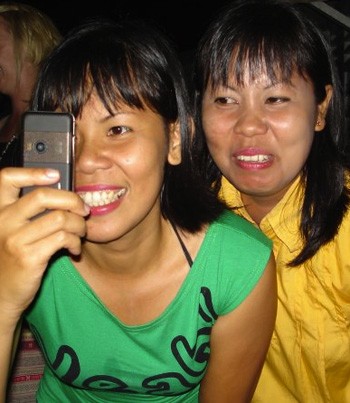Nikki Edwards
 |
Mixed reactions as women document a community development initiative in Bangka BelitungNikki Edwards |
Over recent decades Indonesia’s 120 million women have been the target of a veritable barrage of gender-focused development initiatives designed to help reach the United Nations’ Millennium Development Goal of achieving ‘gender equity’ by 2015. Yet as this deadline looms, has the situation for women really improved? Are women any better equipped to gain access to work, healthcare, resources or government support?
This special edition of Inside Indonesia presents a variety of views on the extent to which gender-focused initiatives have improved or otherwise changed the day-to-day lives of Indonesian women. A number of the articles focus on the gap between those women who have benefited from development and those who are left behind. Some question the rationale underpinning particular development programs or the true effect of gender-focused government initiatives on women. Others focus on the marginalised women who benefit from development initiatives and consider the ways in which this is occurring.
Rosser sets the scene, writing about how government schemes which provide maternal healthcare to low-income women fail to provide an adequate level of support. He contends that these schemes cannot be fixed with more funding alone, but that they must also concentrate on empowering the mothers they aim to help. In











